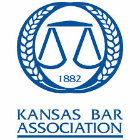On your side
since 1975
Since 1975 we have helped clients through difficult times and complicated legal issues. > Learn More
We provide
personalized attention
We are very selective in taking on new clients and cases, providing personalized attention to every client. > Learn More
Experienced in personal
injury & employment law
We focus our practice on serious personal injury and employment law. > Learn More
We are bar and
community leaders
Our seasoned team of professionals has earned the respect of our clients, peers, and community. > Learn More

Kansas City
Whistleblower Attorney
Experienced Whistleblower Fraud Lawyers Serving Kansas City, MO
Siro Smith Dickson PC has been representing whistleblowers in civil fraud actions and employment retaliation claims for more than forty-five years. Eric Smith, our lead partner on civil fraud (Qui Tam) claims, initially trained and practiced in Washington DC at a major international law firm specializing in federal False Claims Act cases in the military/defense and healthcare industries. Our firm’s attorneys have many decades of combined experience successfully representing whistleblowers in both civil fraud and retaliatory termination claims.
If you are aware of any false or inflated claim for payment, false statement made to obtain a government contract, or any other fraud by a person or entity made to obtain payment from the federal or state government, or fraudulent statements made to avoid making payments to any government agency, please contact our Whistleblower lawyers today to discuss your possible claims. The federal False Claims Act provides that a qui tam relator (the whistleblower) may receive between 15 and 30 percent of the amount recovered by the government through a qui tam action. The United States Department of Justice obtained more than $5.6 billion in settlements and judgments from civil cases involving fraud and false claims in the fiscal year ending Sept. 30, 2021. More information about those recoveries can be found here and the 2021 FCA statistics can be found here.
In addition to recoveries for whistleblowers under the False Claims Act, the law prohibits an employer from forcing you to participate in illegal activity, and it is usually illegal for your employer to retaliate against you when you complain about illegal misconduct either within the company to upper managers who are not involved in the wrongdoing, or outside the company to the proper authorities. Talk to a Siro Smith Dickson Kansas City whistleblower attorney about your rights.
If you have suffered a retaliatory firing or other negative job action because you complained to your boss or other supervisors about your company’s illegal or discriminatory business practices, or because you went outside the company and reported business misconduct to a State or Federal law enforcement agency, give us a call – we can help. Click here to review some of our results in whistleblower cases.
Overview of Whistleblower Claims
Many states have laws that protect employees who “blow the whistle” on illegal activity. For example, you may have a claim if you report violations of the law to a government agency or to your supervisors, or if you refuse to perform an employer’s request or order that violates the law, and you suffer retaliation as a result. The law prohibits employers from retaliating against employees when they engage in certain protected conduct.
You do not necessarily need to be an employee to have a whistleblower claim. There are a number of other statutes that provide whistleblower protections and rewards to current employees, former employees, and residents alike. For example, if you report possible government fraud, mishandling of toxic substances, violations of tax or securities laws, discrimination in education, or failure to provide access to public facilities, whistleblower protections may be available. In some cases, the law may even reward you for blowing the whistle against entities that engage in these types of violations.
Overview of False Claims Act and Qui Tam Lawsuits
The Federal False Claims Act provides individual citizens with the opportunity to play a vital role in deterring and preventing fraud against government programs. In 1863, Congress passed the False Claims Act to battle the massive frauds committed by government contractors during the Civil War. Since then, the False Claims Act has become the most effective whistleblower law used to combat fraud. It creates a liability to the United States for any person who knowingly presents, or causes to be presented, a false or fraudulent claim for payment or approval or knowingly makes, uses, or causes to be made or used, a false record or statement material to a false or fraudulent claim. Many states also have their own False Claims Act. If you have any unanswered questions you can talk to our Kansas City whistleblower attorney.
Learn more
Definition of “Qui Tam”
A False Claims Act lawsuit is often referred to as a “qui tam” lawsuit. “Qui tam” is an abbreviation of a Latin phrase meaning a person who sues in this matter for the king as well as for himself. In other words, someone who brings a qui tam action is bringing the lawsuit on behalf of the government as well as him/herself.
Who Can File a False Claims Act Lawsuit?
A person/whistleblower (called a “relator”) brings a qui tam action on behalf of the government. Anyone with knowledge of fraud against the government can possibly be a relator. You do not need to be an employee of the person or entity who is engaged in the fraud.
What Types of Fraud Implicate the False Claims Act?
Fraud against the government can occur in many different industries, including but not limited to the following industries and typical areas where we investigate and pursue claim:
- COVID-19 Pandemic Program Fraud (including CARES Act and Paycheck Protection Program)
- Healthcare and Pharmaceutical Fraud
- Medicare and Medicaid Fraud
- Veteran’s Benefits Fraud
- Medical Equipment Fraud
- Opioid Prescription Fraud
- Telemedicine or Telehealth Fraud
- Cybersecurity Fraud
- Finance, Banking and Mortgage Fraud
- Securities Fraud
- Accounting and Finance Fraud
- Education Fraud
- Defense/Military Contractor Fraud
What is a Defendant Liable For Under the False Claims Act?
A defendant found guilty of civil fraud against the United States government is liable for triple damages (3 times the amount of damages the government sustained because of the fraudulent act), civil penalties, and attorneys’ fees and costs. The relator can recover between 15-30% of the amount recovered by the government.
Is the Relator Entitled to Any Retaliation Protection?
The Federal False Claims Act contains a strict anti-retaliation provision prohibiting a defendant from discharging, demoting, suspending, threatening, harassing, or in any other manner discriminating against in the terms and conditions of employment any individual because he or she is involved in, provided testimony for, or assisted with a False Claims Act investigation or action.
Reviews & Testimonials
View All Testimonials
Our Results
Legal Awards & Memberships











“One of the most important decisions you’ll make is choosing a qualified attorney who will keep you informed and put your needs first making sure that justice is served.”

General Overview of Retaliation Claims
Retaliation generally takes the form of a demotion, harassment, transfer, or termination of employment. Even a lateral reassignment can be retaliation if the reassignment impacts your eligibility for promotions or advancement. An employer also cannot retaliate by taking action against your spouse or other people who are close to you.
An employer may not retaliate against an employee who engages in conduct protected by law. Protected conduct includes among other things, reporting of fraud or abuse, opposing workplace discrimination against yourself or another employee, assisting or participating in an investigation of discrimination, refusing to engage in conduct you believe to be unlawful, asking your employer about your legal rights, taking protected medical leave, requesting accommodations for a disability, associating with other people who are protected based on race, sex, national origin, or religion, or otherwise exercise your rights under the law.
Employees also have the right to organize without employer retaliation. This right includes the right to join or assist labor unions, bargain collectively through representatives of their own choosing, and engage in other activities for mutual aid or protection.
If you “blow the whistle” on an employer’s illegal activity, you may also have whistleblower protection. A number of state and Federal statutes include anti-retaliation protection for individuals who report violations of the law. In some cases, the law even rewards individuals who blow the whistle on illegal activity.
Learn more
Contact an Experienced Kansas City Whistleblower Attorney For Assistance
Siro Smith Dickson PC represents whistleblowers in qui tam actions and other employees who are retaliated against for engaging in legally protected activity. If you believe you have a whistleblower claim, or would simply like more information, please contact Eric Smith or one of our other experienced whistleblower attorneys.

















